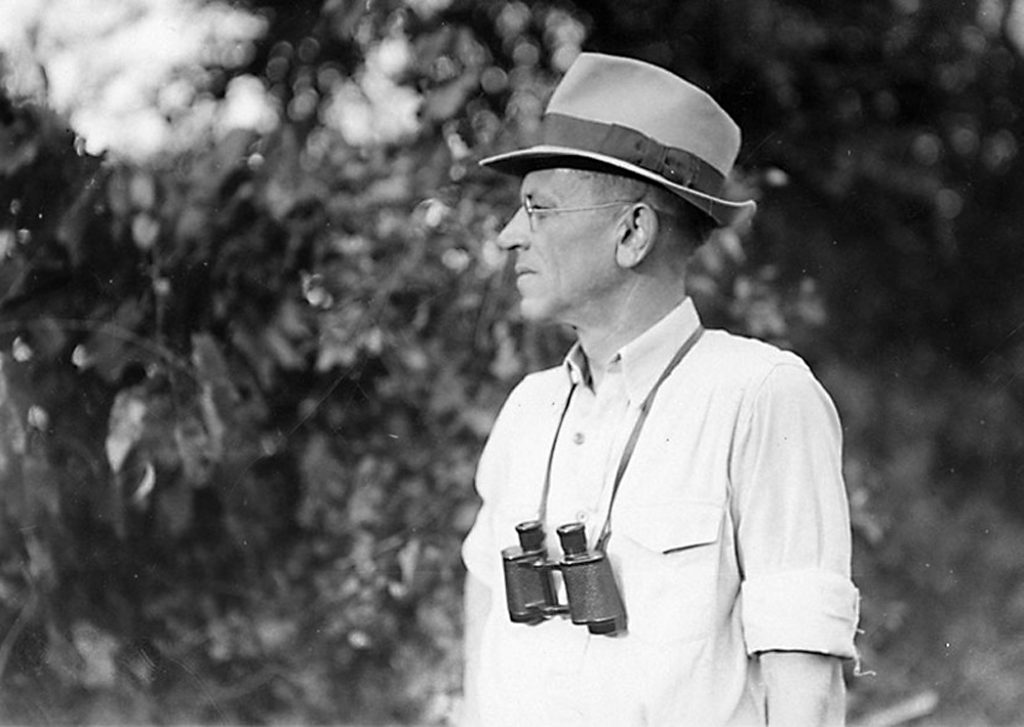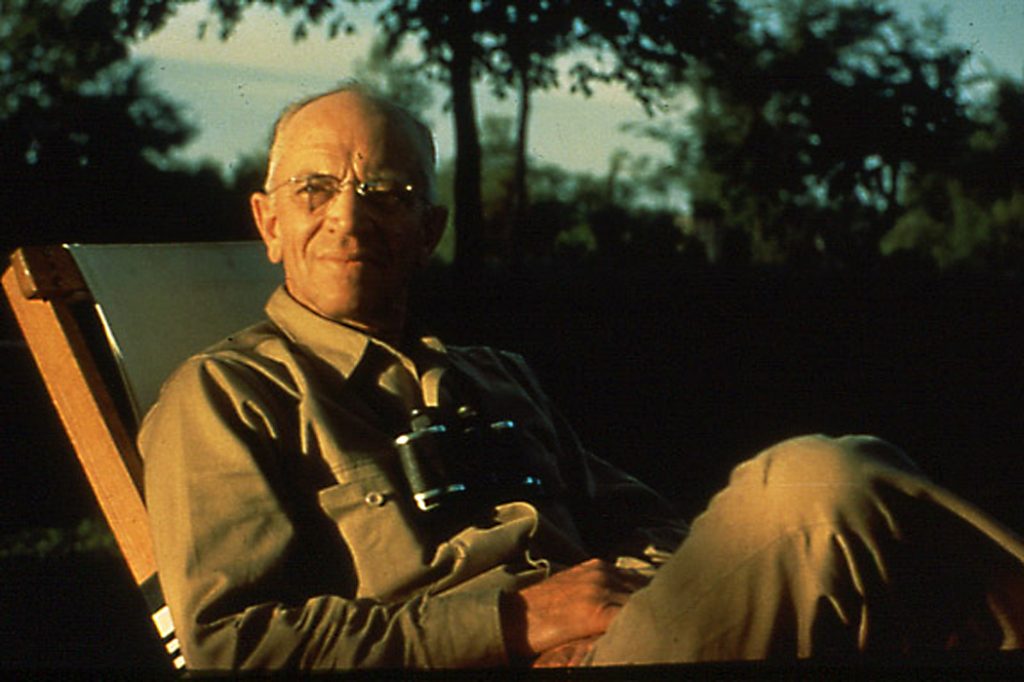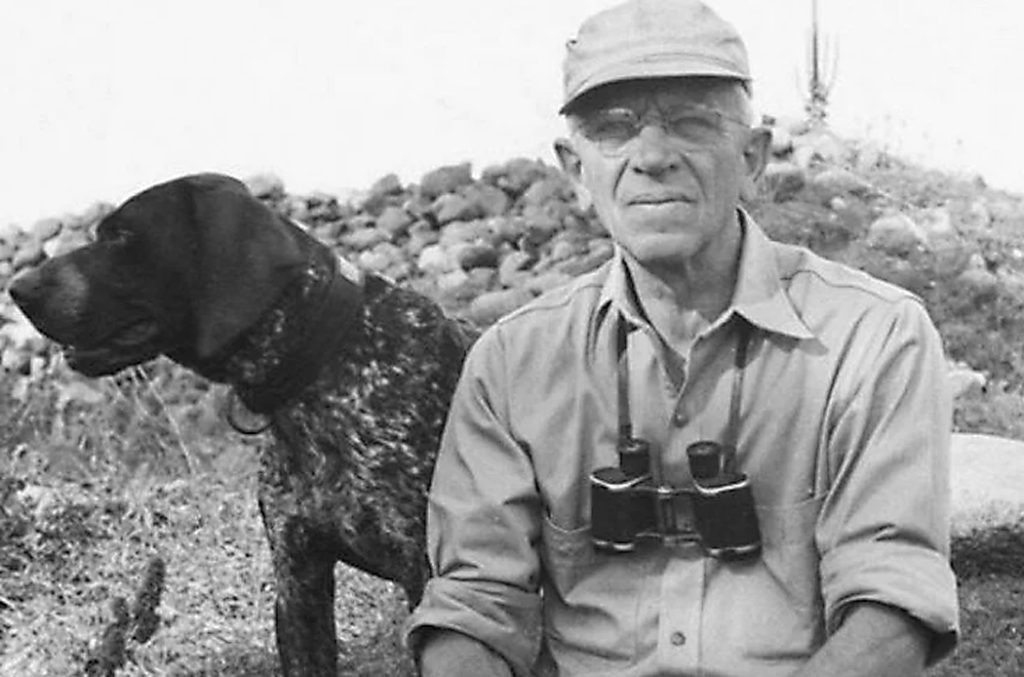
This year marks two notable anniversaries in environmental conservation that are the direct result of the work of Iowa-born scientist and ecologist Aldo Leopold (1887-1948). One hundred years ago, at Leopold’s urging, the U.S. Forest Service approved the Gila Wilderness Area as the world’s first designated wilderness. And 75 years ago, Oxford University Press published Leopold’s famous collection of essays, A Sand County Almanac. Both were landmarks in the history of conservation. Even more importantly, both point toward continuing Leopold’s important work of respecting land as “a community to which we belong,” the philosophy he called a “land ethic.”
Raised in Burlington, Iowa, Leopold grew up in a house on a bluff overlooking the Mississippi River. His childhood discoveries in the ravines, islands, and bottomlands along the Mississippi made an impression that led to his lifelong love of wild places. “This much at least is sure.. .,” he later said. “My earliest impressions of wildlife and its pursuit retain a vivid sharpness of form, color and atmosphere that half a century of professional wildlife experience has failed to obliterate or improve upon.”
Leopold first became familiar with the remarkable and rugged lands at the headwaters of the Gila River as a young forester working for the U.S. Forest Service in what is today New Mexico. Physically and biologically diverse, this area had long been valued and held sacred by Indigenous peoples, including the Mogollon and Chiricahua Apache.
Leopold began his career in conservation just as automobiles were coming into the American landscape. With cars came roads, and he watched as new roads fragmented the extensive wildlands of the Southwest, in part to promote tourism. In Leopold’s view, the unique expanse and beauty of the 750,000-acre Gila backcountry made it better suited for non-motorized use than for roads and timber production. This led to his novel proposal: to designate the lands as a federal wilderness area. Leopold wrote, “It will be much easier to keep wilderness areas than to create them. In fact, the latter alternative may be dismissed as impossible.” Today, the National Wilderness Preservation System protects some of the most biologically diverse and ecologically healthy areas across 806 Wilderness Areas in the United States, totaling over 111 million acres.

Twenty-five years after the Gila Wilderness designation, Oxford University Press published Leopold’s collection of poetic and philosophical essays, A Sand County Almanac. A foundational work of conservation literature, it has captivated generations of readers with its rich tapestry of history, humor, science, and lyrical prose. The Aldo Leopold Foundation proudly marks this milestone with the release of a 75th Anniversary Edition of Leopold’s classic.
Renowned author and conservationist Barbara Kingsolver provides a poignant introduction, reflecting on the perennial relevance of Leopold’s work: “Aldo Leopold, a man who died before I was born, is part of my inner circle. I always look forward to cracking open his door, A Sand County Almanac, for another chat.”
A Sand County Almanac leads readers through the diverse landscapes of Leopold’s experience. It culminates in the influential essay “The Land Ethic,” in which Leopold calls for social responsibility toward the natural world. Leopold writes, “Nothing so important as an ethic is ever written…it evolves in the minds of a thinking community.” The effort to define an ethic of care has only become more urgent since Leopold’s time.
Buddy Huffaker, president of the Aldo Leopold Foundation, highlights Leopold’s special role in this process, noting, “Leopold’s powerful voice continues to guide individuals, helping them reconcile their feelings with current events, and inspiring meaningful actions growing from an ethic of care that includes all places, and all people.”

Over the last 75 years, A Sand County Almanac has sold in the millions, been translated into 14 languages, and influenced conservationists around the world. To bring new readers to this classic, the Aldo Leopold Foundation is offering the 75th Edition at over 50 percent off the cover price of $7.50, available at www.aldoleopold.org.
The Aldo Leopold Foundation, a non-profit conservation organization, is headquartered in the LEED Platinum Aldo Leopold Legacy Center in Baraboo, Wisconsin. The Foundation’s staff invite enthusiasts to explore Leopold’s famed Shack, a National Historic Landmark, and learn about their restoration and care of the surrounding 4,000-acre Leopold-Pines Conservation Area. As a beacon for environmental stewardship, the foundation carries forward Leopold’s legacy, fostering care for land and people. www.aldoleopold.org
